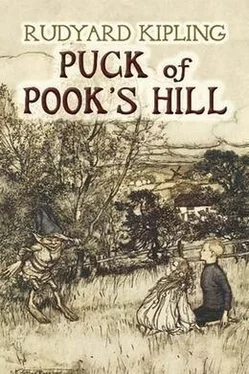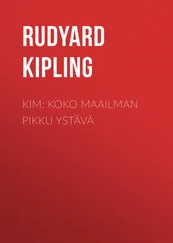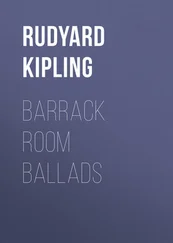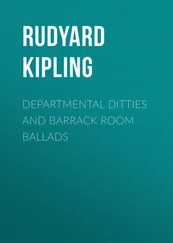Rudyard Kipling - Puck of Pook's Hill
Здесь есть возможность читать онлайн «Rudyard Kipling - Puck of Pook's Hill» весь текст электронной книги совершенно бесплатно (целиком полную версию без сокращений). В некоторых случаях можно слушать аудио, скачать через торрент в формате fb2 и присутствует краткое содержание. Год выпуска: 2014, Издательство: epubBooks Classics, Жанр: Фэнтези, на английском языке. Описание произведения, (предисловие) а так же отзывы посетителей доступны на портале библиотеки ЛибКат.
- Название:Puck of Pook's Hill
- Автор:
- Издательство:epubBooks Classics
- Жанр:
- Год:2014
- ISBN:нет данных
- Рейтинг книги:3 / 5. Голосов: 1
-
Избранное:Добавить в избранное
- Отзывы:
-
Ваша оценка:
- 60
- 1
- 2
- 3
- 4
- 5
Puck of Pook's Hill: краткое содержание, описание и аннотация
Предлагаем к чтению аннотацию, описание, краткое содержание или предисловие (зависит от того, что написал сам автор книги «Puck of Pook's Hill»). Если вы не нашли необходимую информацию о книге — напишите в комментариях, мы постараемся отыскать её.
Puck of Pook's Hill — читать онлайн бесплатно полную книгу (весь текст) целиком
Ниже представлен текст книги, разбитый по страницам. Система сохранения места последней прочитанной страницы, позволяет с удобством читать онлайн бесплатно книгу «Puck of Pook's Hill», без необходимости каждый раз заново искать на чём Вы остановились. Поставьте закладку, и сможете в любой момент перейти на страницу, на которой закончили чтение.
Интервал:
Закладка:
Dwindle down and leave you!
But if you don't deceive your Bees,
Your Bees will not deceive you.
Marriage, birth or buryin',
News across the seas,
All you're sad or merry in,
You must tell the Bees.
Tell 'em coming in an' out,
Where the Fanners fan,
'Cause the Bees are justabout
As curious as a man!
Don't you wait where trees are,
When the lightnings play;
Nor don't you hate where Bees are,
Or else they'll pine away.
Pine away—dwine away—
Anything to leave you!
But if you never grieve your Bees,
Your Bees'll never grieve you!
Just at dusk, a soft September rain began to fall on the hop–pickers. The mothers wheeled the bouncing perambulators out of the gardens; bins were put away, and tally–books made up. The young couples strolled home, two to each umbrella, and the single men walked behind them laughing. Dan and Una, who had been picking after their lessons, marched off to roast potatoes at the oast–house, where old Hobden, with Blue–eyed Bess, his lurcher dog, lived all the month through, drying the hops.
They settled themselves, as usual, on the sack–strewn cot in front of the fires, and, when Hobden drew up the shutter, stared, as usual, at the flameless bed of coals spouting its heat up the dark well of the old–fashioned roundel. Slowly he cracked off a few fresh pieces of coal, packed them, with fingers that never flinched, exactly where they would do most good; slowly he reached behind him till Dan tilted the potatoes into his iron scoop of a hand; carefully he arranged them round the fire, and then stood for a moment, black against the glare. As he closed the shutter, the oast–house seemed dark before the day's end, and he lit the candle in the lanthorn. The children liked all these things because they knew them so well.
The Bee Boy, Hobden's son, who is not quite right in his head, though he can do anything with bees, slipped in like a shadow. They only guessed it when Bess's stump–tail wagged against them.
A big voice began singing outside in the drizzle:
'Old Mother Laidinwool had nigh twelve months been dead, She heard the hops were doin' well, and then popped up her head.'
'There can't be two people made to holler like that!' cried old Hobden, wheeling round.
'For,' says she, 'The boys I've picked with when I was young and fair, They're bound to be at hoppin', and I'm―'
A man showed at the doorway.
'Well, well! They do say hoppin' 'll draw the very deadest, and now I belieft 'em. You, Tom? Tom Shoesmith?' Hobden lowered his lanthorn.
'You're a hem of a time makin' your mind to it, Ralph!' The stranger strode in—three full inches taller than Hobden, a grey–whiskered, brown–faced giant with clear blue eyes. They shook hands, and the children could hear the hard palms rasp together.
'You ain't lost none o' your grip,' said Hobden. 'Was it thirty or forty year back you broke my head at Peasmarsh Fair?'
'Only thirty, an' no odds 'tween us regardin' heads, neither. You had it back at me with a hop–pole. How did we get home that night? Swimmin'?'
'Same way the pheasant come into Gubbs's pocket—by a little luck an' a deal o' conjurin'.' Old Hobden laughed in his deep chest.
'I see you've not forgot your way about the woods. D'ye do any o' this still?' The stranger pretended to look along a gun.
Hobden answered with a quick movement of the hand as though he were pegging down a rabbit–wire.
'No. That's all that's left me now. Age she must as Age she can. An' what's your news since all these years?'
'Oh, I've bin to Plymouth, I've bin to Dover— I've bin ramblin', boys, the wide world over,'
the man answered cheerily. 'I reckon I know as much of Old England as most.' He turned towards the children and winked boldly.
'I lay they told you a sight o' lies, then. I've been into England fur as Wiltsheer once. I was cheated proper over a pair of hedgin'–gloves,' said Hobden.
'There's fancy–talkin' everywhere. You've cleaved to your own parts pretty middlin' close, Ralph.'
'Can't shift an old tree 'thout it dyin',' Hobden chuckled. 'An' I be no more anxious to die than you look to be to help me with my hops tonight.'
The great man leaned against the brickwork of the roundel, and swung his arms abroad. 'Hire me!' was all he said, and they stumped upstairs laughing.
The children heard their shovels rasp on the cloth where the yellow hops lie drying above the fires, and all the oast–house filled with the sweet, sleepy smell as they were turned.
'Who is it?' Una whispered to the Bee Boy.
'Dunno, no more'n you—if you dunno,' said he, and smiled.
The voices on the drying–floor talked and chuckled together, and the heavy footsteps moved back and forth. Presently a hop–pocket dropped through the press–hole overhead, and stiffened and fattened as they shovelled it full. 'Clank!' went the press, and rammed the loose stuff into tight cake.
'Gently!' they heard Hobden cry. 'You'll bust her crop if you lay on so. You be as careless as Gleason's bull, Tom. Come an' sit by the fires. She'll do now.'
They came down, and as Hobden opened the shutter to see if the potatoes were done Tom Shoesmith said to the children, 'Put a plenty salt on 'em. That'll show you the sort o' man I be.' Again he winked, and again the Bee Boy laughed and Una stared at Dan.
' I know what sort o' man you be,' old Hobden grunted, groping for the potatoes round the fire.
'Do ye?' Tom went on behind his back. 'Some of us can't abide Horseshoes, or Church Bells, or Running Water; an', talkin' o' runnin' water'—he turned to Hobden, who was backing out of the roundel—'d'you mind the great floods at Robertsbridge, when the miller's man was drowned in the street?'
'Middlin' well.' Old Hobden let himself down on the coals by the fire–door. 'I was courtin' my woman on the Marsh that year. Carter to Mus' Plum I was, gettin' ten shillin's week. Mine was a Marsh woman.'
'Won'erful odd–gates place―Romney Marsh,' said Tom Shoesmith. 'I've heard say the world's divided like into Europe, Ashy, Afriky, Ameriky, Australy, an' Romney Marsh.'
'The Marsh folk think so,' said Hobden. 'I had a hem o' trouble to get my woman to leave it.'
'Where did she come out of? I've forgot, Ralph.'
'Dymchurch under the Wall,' Hobden answered, a potato in his hand.
'Then she'd be a Pett—or a Whitgift, would she?'
'Whitgift.' Hobden broke open the potato and ate it with the curious neatness of men who make most of their meals in the blowy open. 'She growed to be quite reasonable–like after livin' in the Weald awhile, but our first twenty year or two she was odd–fashioned, no bounds. And she was a won'erful hand with bees.' He cut away a little piece of potato and threw it out to the door.
'Ah! I've heard say the Whitgifts could see further through a millstone than most,' said Shoesmith. 'Did she, now?'
'She was honest–innocent of any nigromancin',' said Hobden. 'Only she'd read signs and sinnifications out o' birds flyin', stars fallin', bees hivin', and such. An, she'd lie awake—listenin' for calls, she said.'
'That don't prove naught,' said Tom. 'All Marsh folk has been smugglers since time everlastin'. 'Twould be in her blood to listen out o' nights.'
'Nature–ally,' old Hobden replied, smiling. 'I mind when there was smugglin' a sight nearer us than what the Marsh be. But that wasn't my woman's trouble. 'Twas a passel o' no–sense talk'—he dropped his voice—'about Pharisees.'
'Yes. I've heard Marsh men belieft in 'em.' Tom looked straight at the wide–eyed children beside Bess.
Читать дальшеИнтервал:
Закладка:
Похожие книги на «Puck of Pook's Hill»
Представляем Вашему вниманию похожие книги на «Puck of Pook's Hill» списком для выбора. Мы отобрали схожую по названию и смыслу литературу в надежде предоставить читателям больше вариантов отыскать новые, интересные, ещё непрочитанные произведения.
Обсуждение, отзывы о книге «Puck of Pook's Hill» и просто собственные мнения читателей. Оставьте ваши комментарии, напишите, что Вы думаете о произведении, его смысле или главных героях. Укажите что конкретно понравилось, а что нет, и почему Вы так считаете.












